Index
- 2011 | Pilot program in Centro Escolar Distrito Italia
- 2012-2013 | Program Expansion to Four New Schools in San Salvador Funded by the Korean Ministry of Education
- 2013-2017 | Localization in El Salvador
The initiative for this project was sparked when Carlos Garcia of the Permanent Mission of El Salvador to the United Nations attended the Brain Education Seminar at the UN headquarters in New York in 2011. During this seminar, he learned about the successful application of Brain Education in schools in both the United States and Korea. Inspired by its potential benefits, Garcia recommended the introduction of Brain Education to the Ministry of Foreign Affairs and the Ministry of Education in El Salvador.
From its initial introduction in 2011, the project saw nationwide expansion, with a focus on training teachers throughout the country. Guided by the Ministry of Education of El Salvador and the Salvadorian Institute for Educator’s Wellness (ISBM), the project has achieved remarkable milestones. By 2017, over 1,400 schools, which equates to a quarter of all schools in El Salvador, had teachers who had undergone Brain Education training.
With the adoption of Brain Education, the Salvadoran government aimed to embed a culture of peaceful coexistence within classrooms. This was seen as a key strategy to address the pervasive societal violence in the country – an issue that both stemmed from and exacerbated various challenges, including poverty, gender inequality, and disparities in health and education.
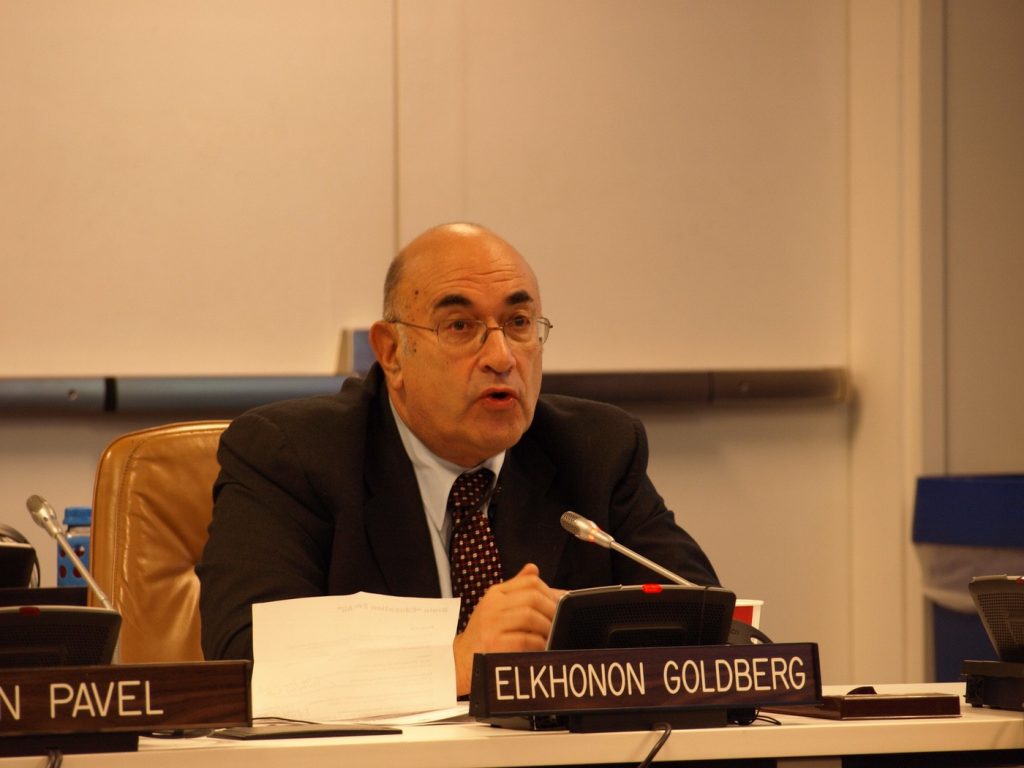
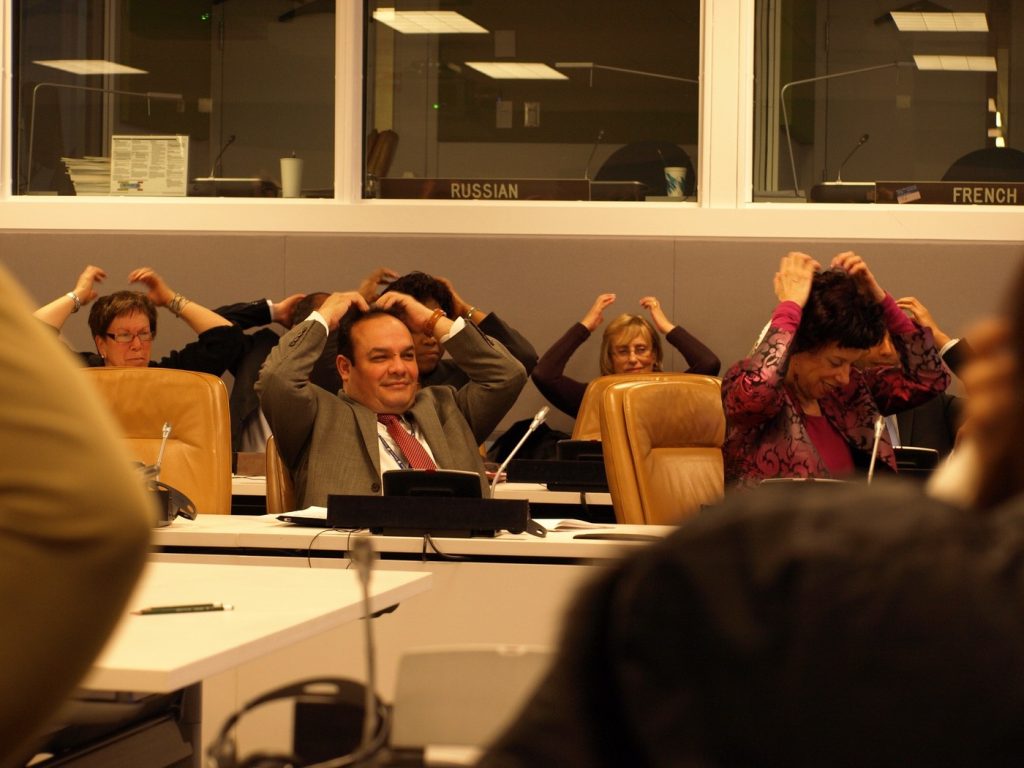
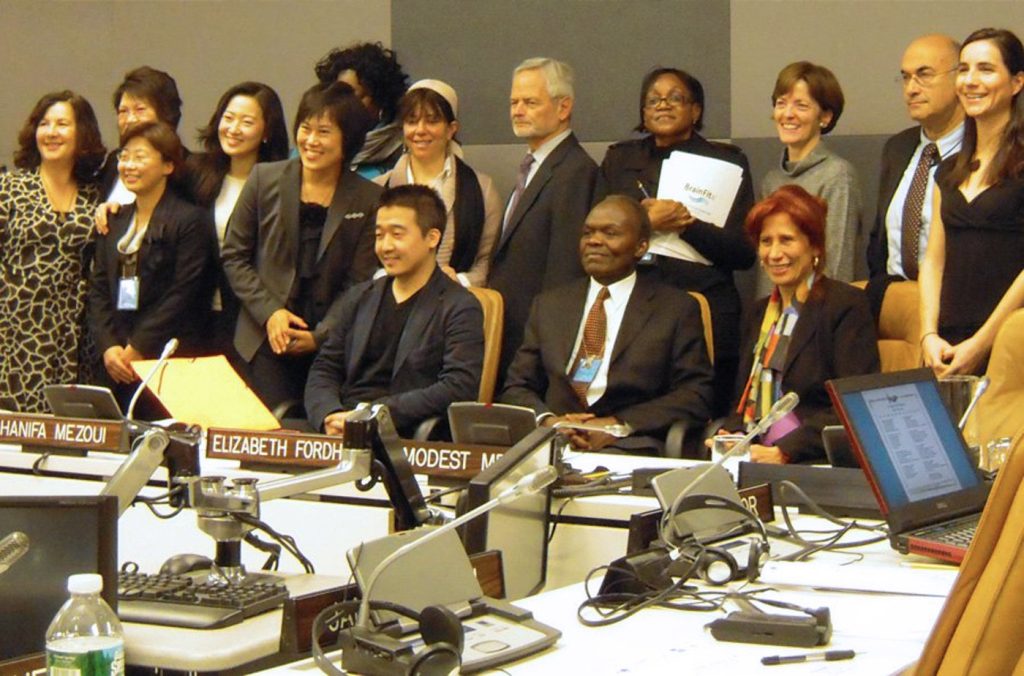
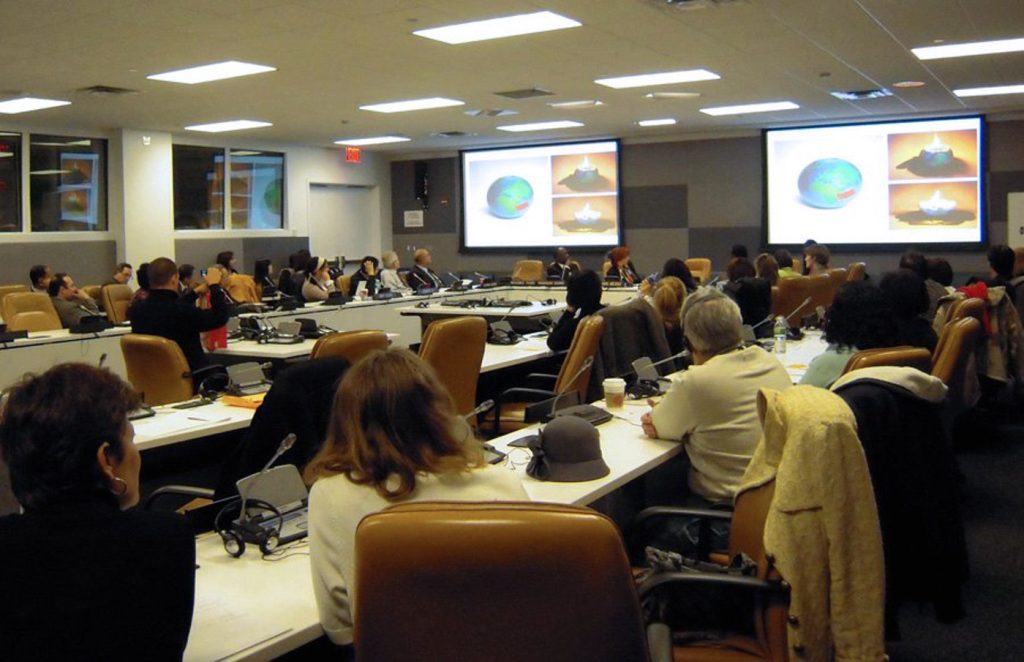

President Salvador Sánchez Cerén of El Salvador, who fervently backed the Brain Education project during his tenure as Minister of Education and subsequently as President, summarized the transformative effect of Brain Education:
You should feel proud that this IBREA program started here, offering an innovative philosophy that combines neuroscience, knowledge of the brain, energy, and emotional regulation, and takes you through a process to mold and cultivate your character towards a healthier and happier life. This process has a lot to do with the wish we all share as a society, and the desire to live in harmony and peace. We want to live in tolerance—be able to accept each other. In that sense, I think that this initiative method implemented by IBREA is very special, and that’s why we have supported its expansion to other schools
In an inauguration ceremony of Pool for Peace in Centro Escolar Distrito Italia, 2012
In 2018, influenced by the endorsements of over 500 Salvadoran teachers who personally testified to the merits and efficacy of Brain Education, Chairman Ilchi Lee of the IBREA Foundation was conferred the highest distinction by the Salvadoran government: the José Simeón Cañas Slave Liberator Order. The Salvadoran authorities lauded the IBREA Foundation for “its collaboration with the UN and the Korean Ministry of Education over the preceding eight years in propagating Korean Brain Education in El Salvador’s public schools. Their efforts markedly enhanced the mental and physical well-being of educators and pupils and sowed the seeds for a peaceful academic culture.”
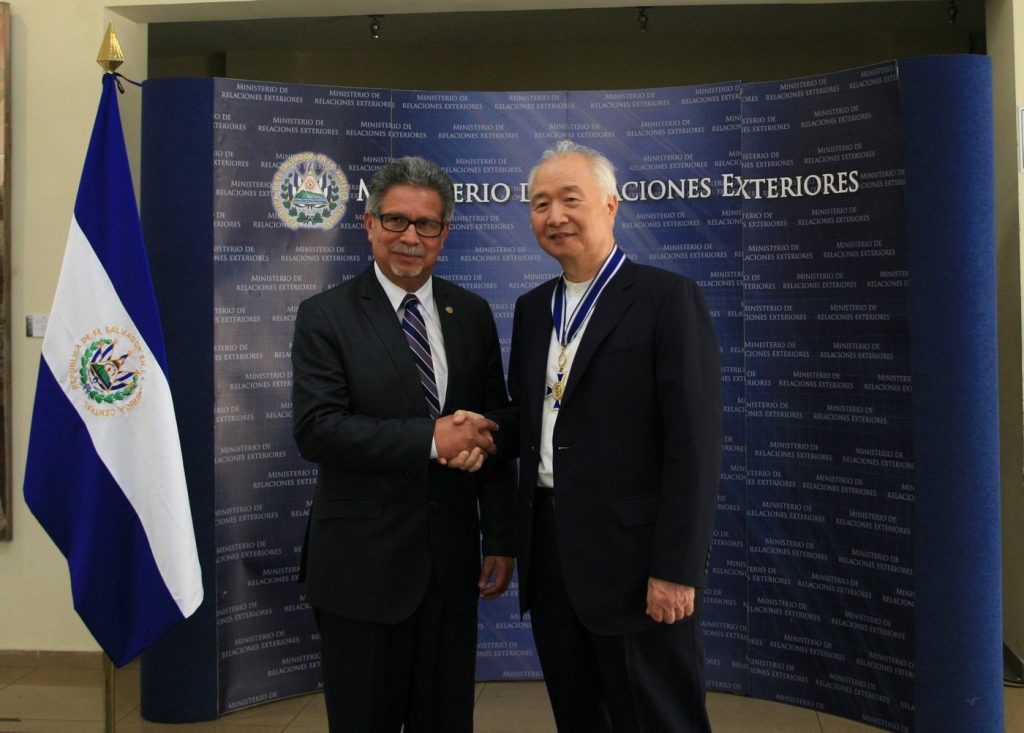
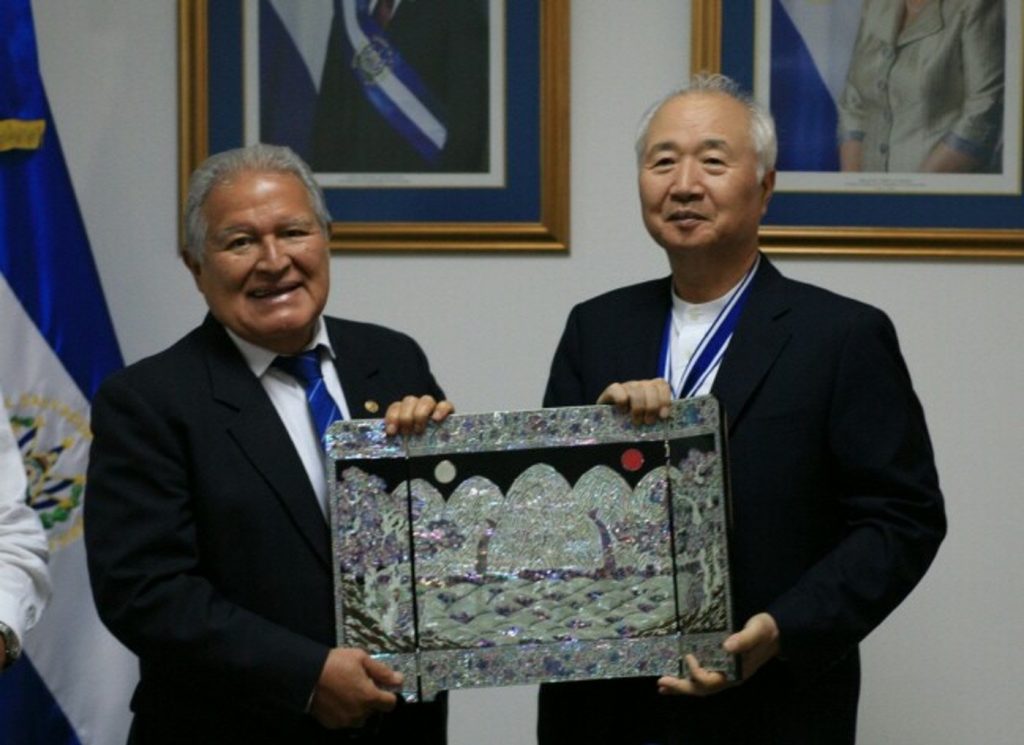
Currently, the IBREA Foundation is gearing up to inaugurate the Ilchi Peace Research Institute in 2019, with a primary focus on systematically training Brain Education instructors in El Salvador.
2011 | Pilot program in Centro Escolar Distrito Italia
- Period: June to August 2011 (3 months)
- Beneficiaries: 39 students and 24 teachers from Centro Escolar Distrito Italia
- Content: Brain Education classes, one hour long, held from Monday to Thursday every week
- Partnership Organizations: IBREA, IBREA Foundation, Korea Institute of Brain Education
The project’s implementation led to noticeable outcomes, including reduced student absenteeism, fewer negative gender experiences, enhanced self-esteem, and improved emotional regulation. These achievements were showcased during a case presentation hosted by the Salvadorian government in August 2012 and at a UN General Assembly session in October of that year.
On June 20, 2011, one of El Salvador’s major newspapers, “El Salvador,” reported: “The violent Tonacatepeque region became the first in Central America to adapt Brain Education based on Korean teaching pedagogies. There are high expectations that Brain Education will help overcome stress and improve brain conditions.” Principal Edwin Perez, after introducing Brain Education to his school, remarked, “Brain Education is improving the quality of life, and children are regaining confidence. Parents are satisfied with this education.” Given the increasing local interest, the introduction of Brain Education was prominently showcased across two pages.
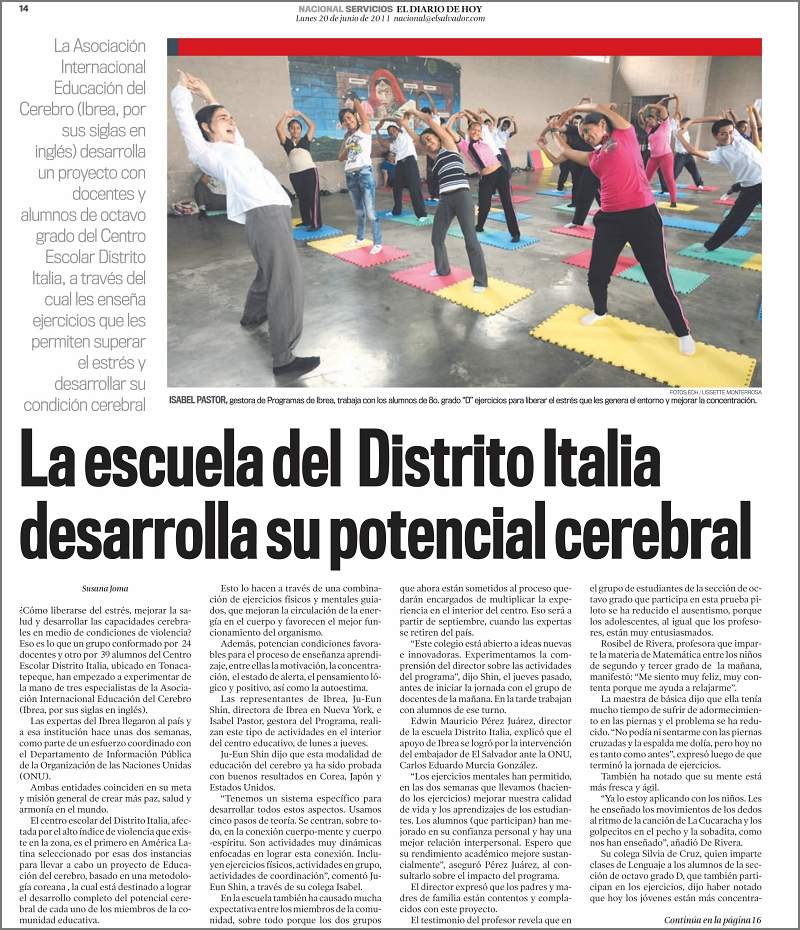
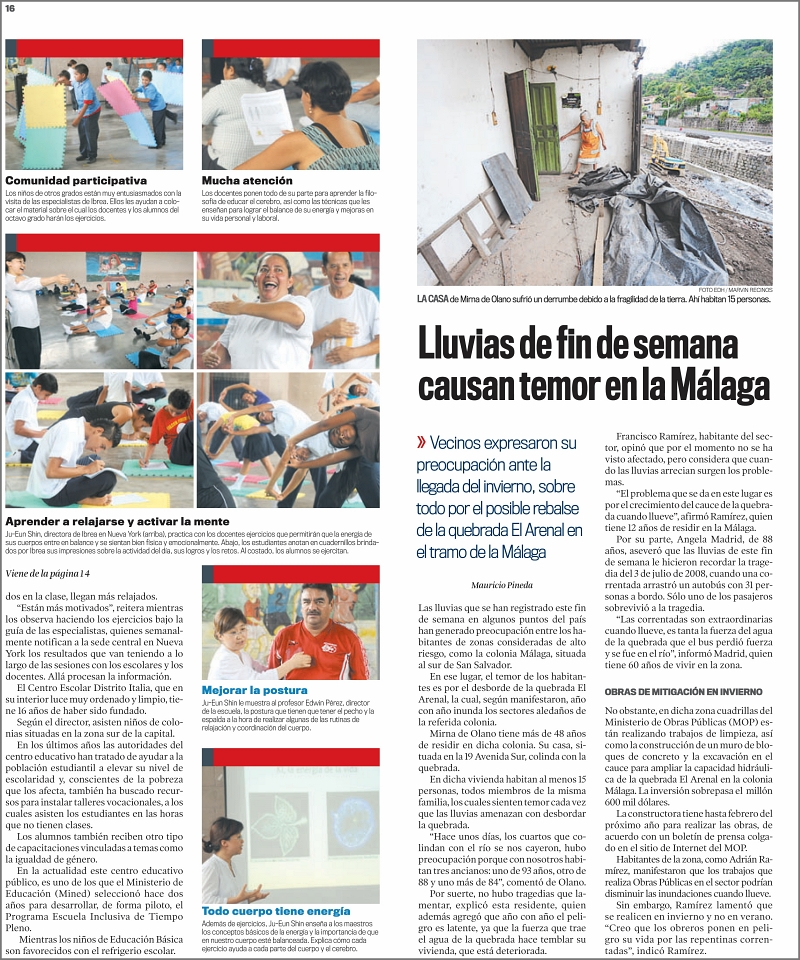
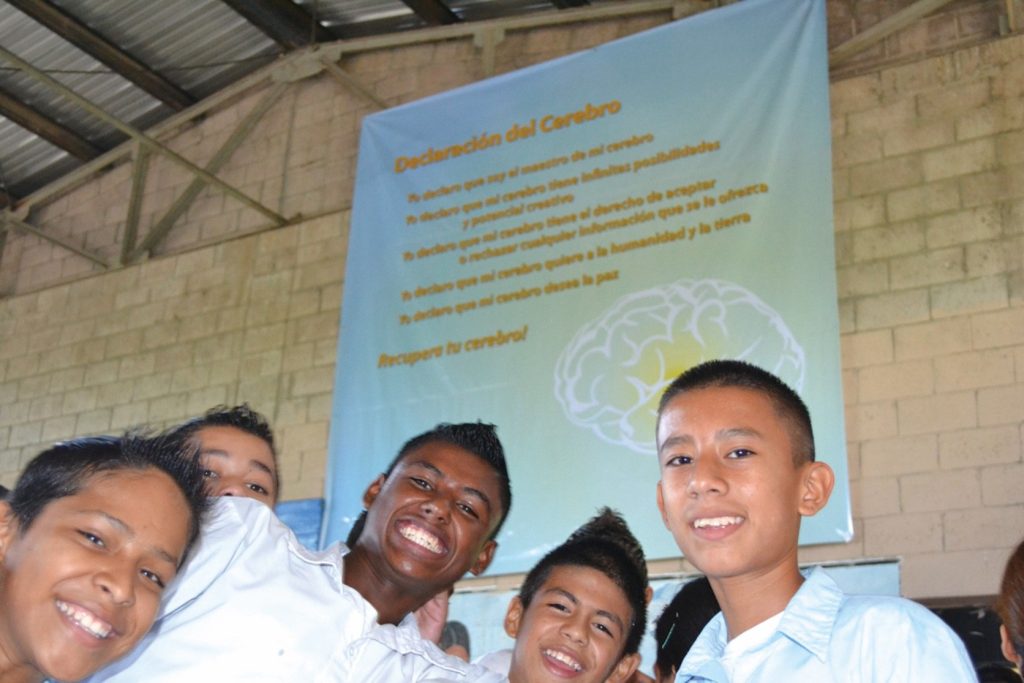
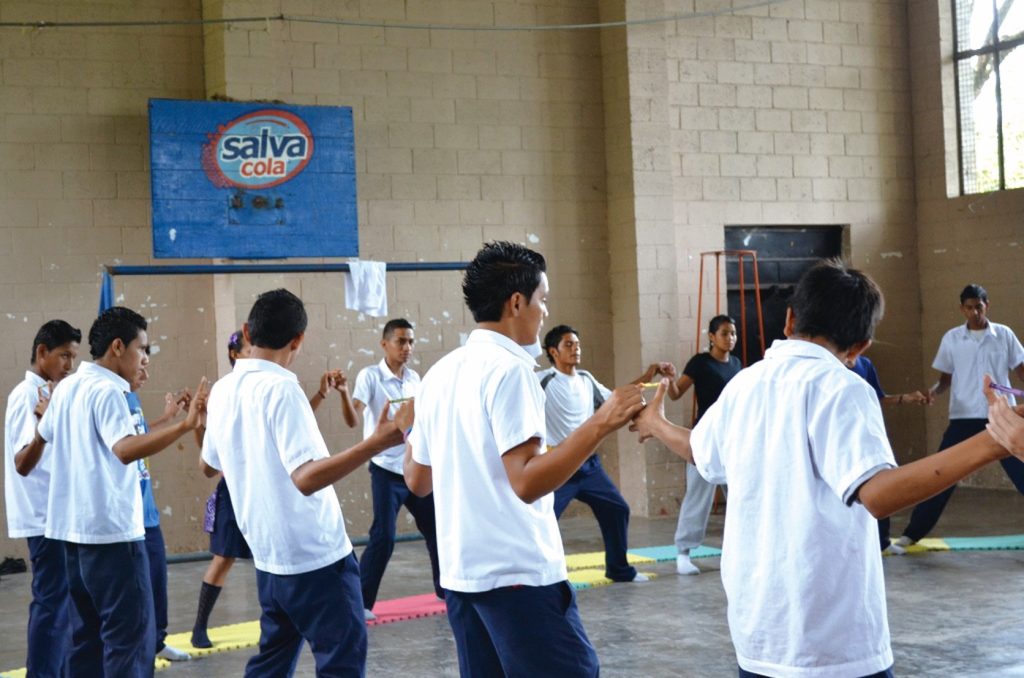
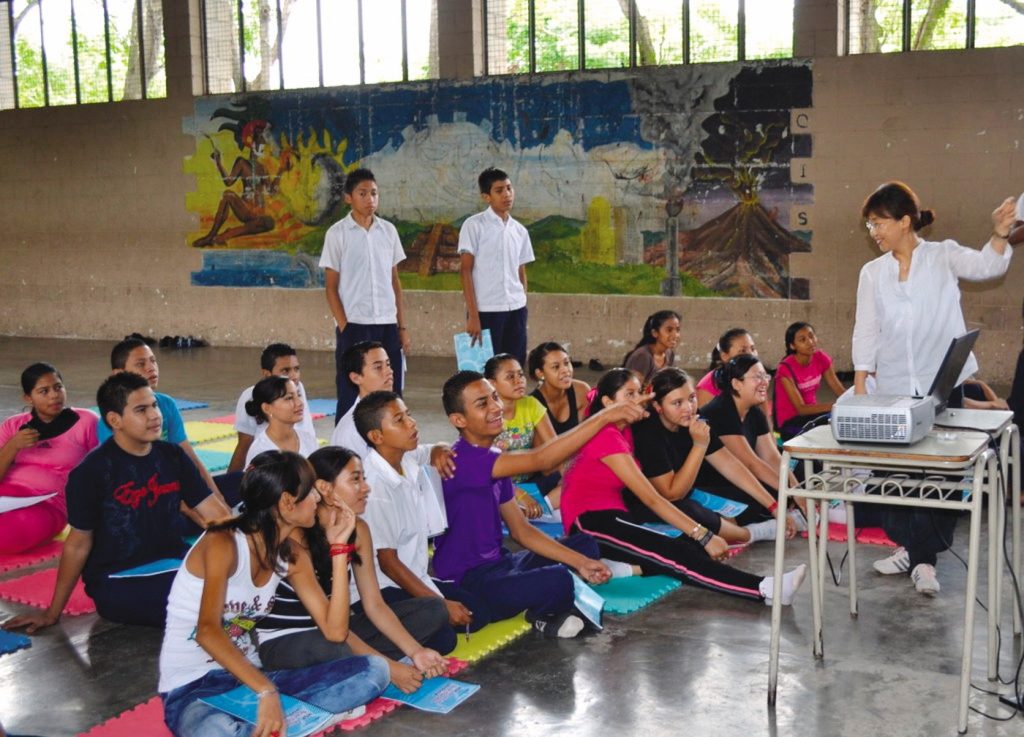
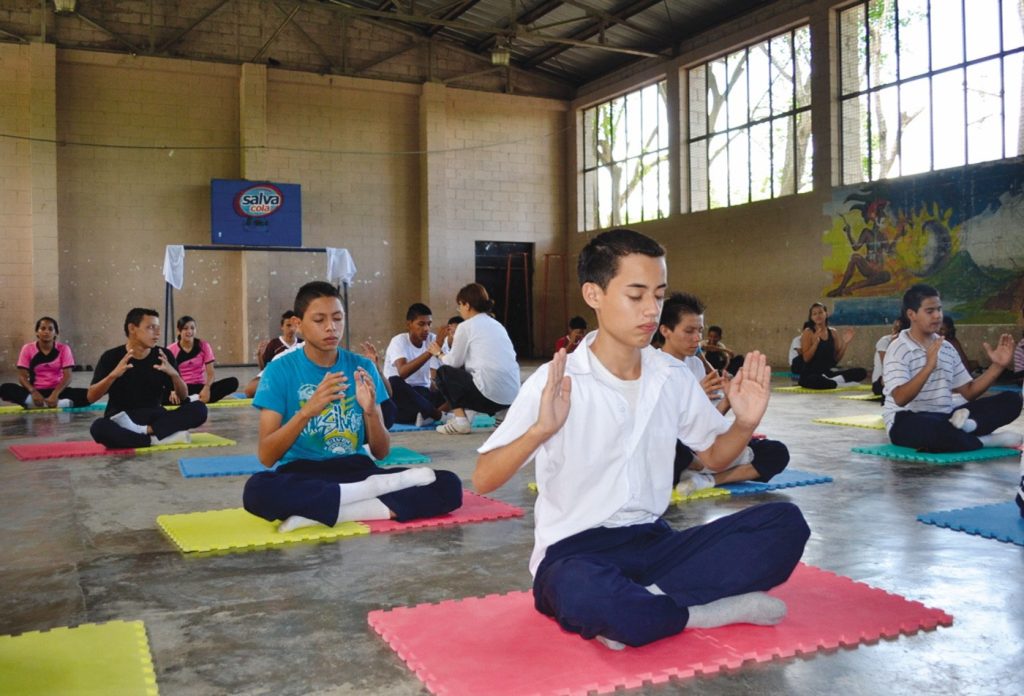
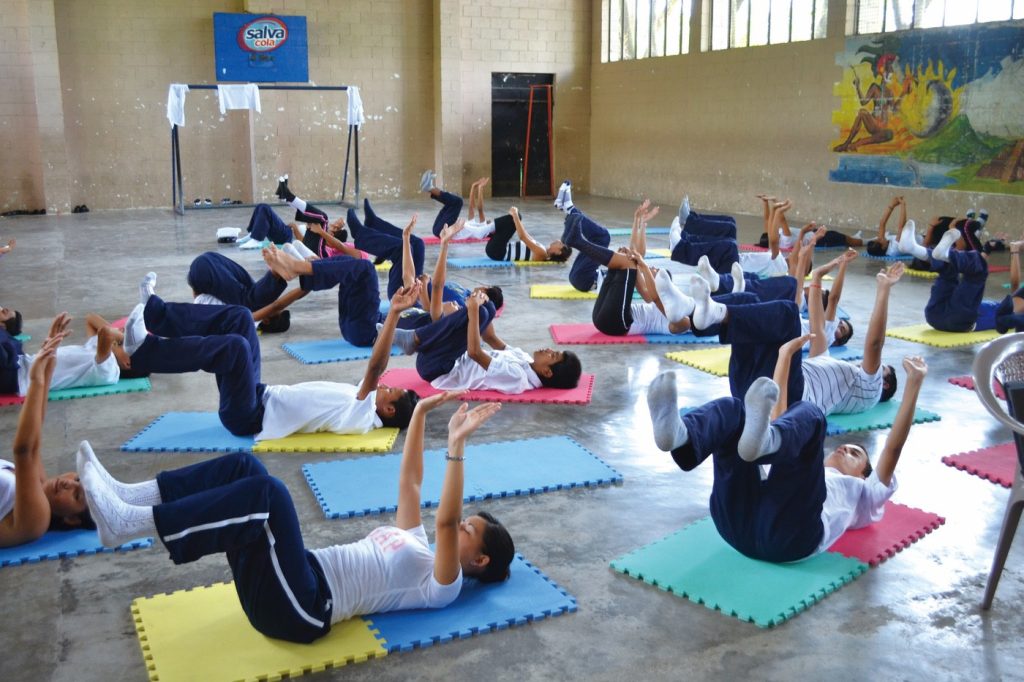
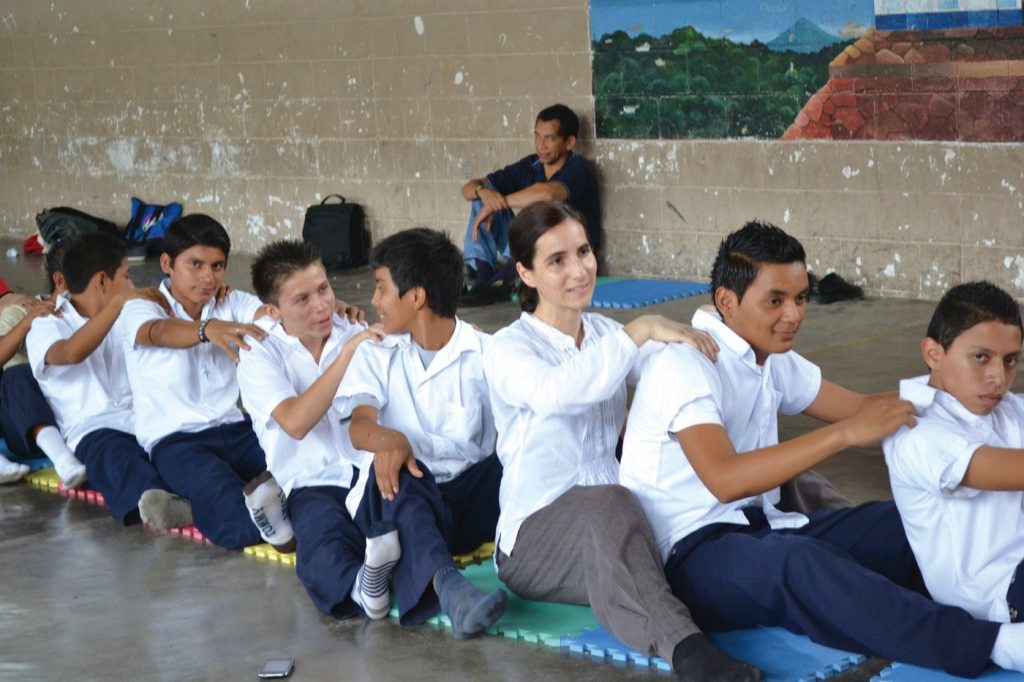
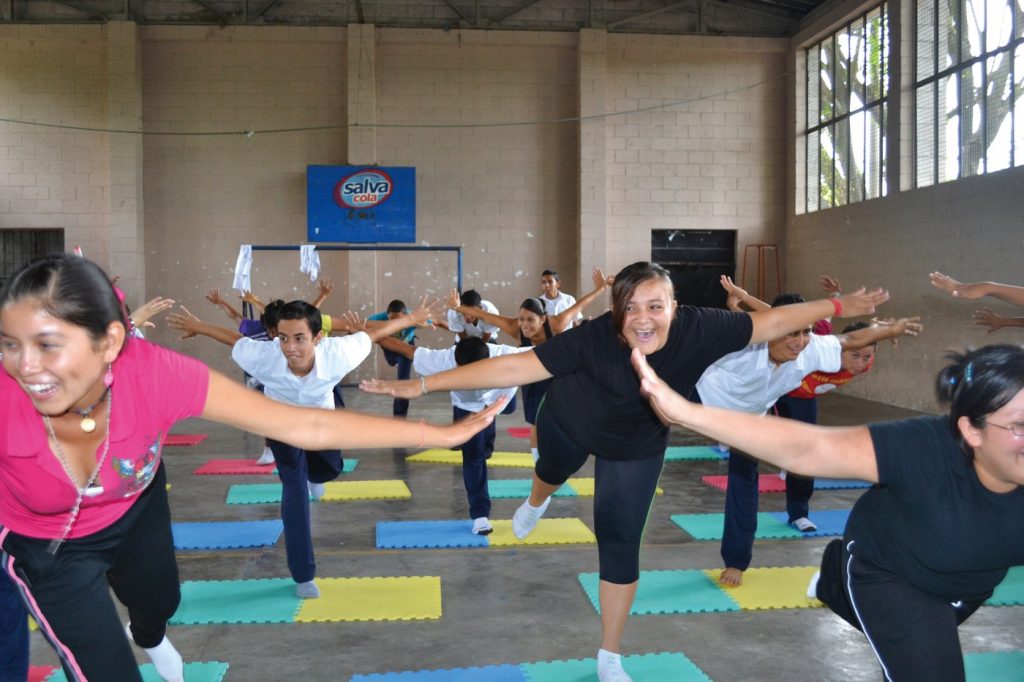
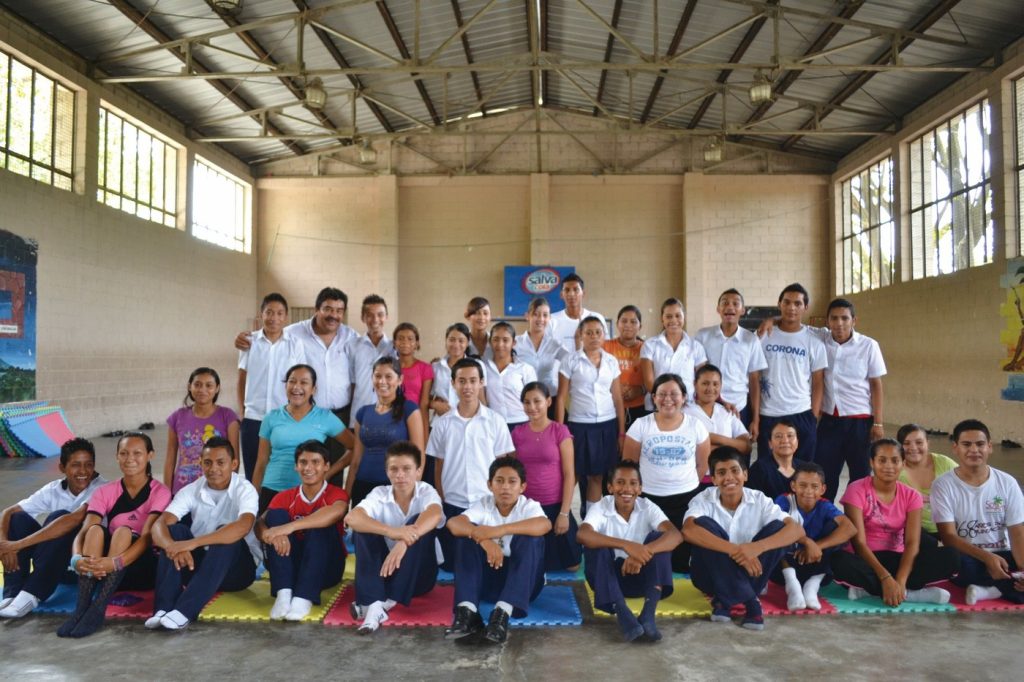
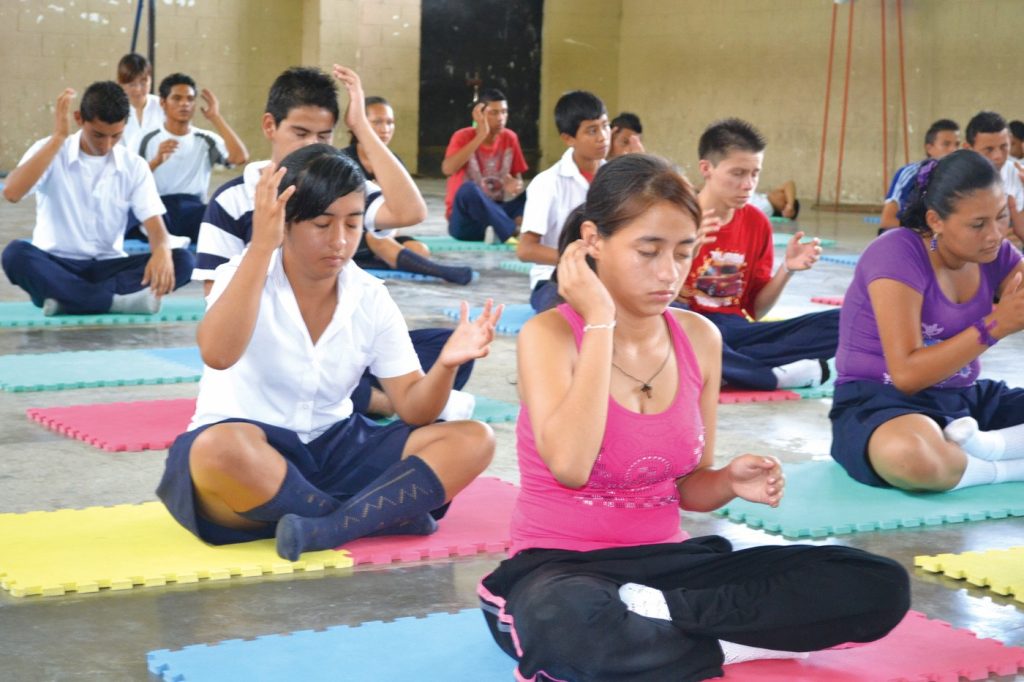
2012-2013 | Program Expansion to Four New Schools in San Salvador Funded by the Korean Ministry of Education
- Period: July 2012 to May 2013
- Partnership Organizations: IBREA, IBREA Foundation, Global Cyber University
Following the pilot project’s success in 2011, then-Vice President Salvador Sánchez Cerén of El Salvador proposed expanding the program to eight schools. However, after assessment, it was introduced in four new schools in San Salvador. The 2012 initiative, titled ‘Public Education Support Program to Enhance Emotional Regulation and Self-Esteem through Teacher Training and Consulting’, received funding from the Korean government via the Ministry of Education, Science, and Technology’s Official Development Assistance (ODA) program.
This program deviated from the pilot’s initial approach. Led by Global Cyber University, which specializes in Brain Education, its primary focus was on training educators and school administrators. Additionally, educational consultations were provided, aiming to ensure the long-term establishment of Brain Education in schools and foster enduring positive community transformations.
Principal Gloria Muller from Joaquín Rodezno School, who participated in the project, visited Korea in 2013 to express her gratitude. At the time, Muller conveyed the changes witnessed in her school:
“The first noticeable thing was the improvement in students’ academic performance. Issues of drug abuse and violence also decreased. However, the most striking changes were seen in self-regulation and positive relationships among students. And students, who previously had no hopes or dreams for their future, started discussing their aspirations and goals”
From a presentation by Principal Gloria Muller at the 2013 Youth Mental Health Symposium
Project Implementation Process
- July-August 2012: Collection and analysis of data, consultation with expert groups, and development of the teacher training program.
- September-November 2012: Execution of professional teacher training and a demonstration class for students.
- February-March 2013: Refresher training and consultations.
- April-May 2013: Evaluation of the project’s impact and final report submission.
Brain Education Professional Teacher Training Program
- Participants: 79 teachers from 4 schools.
- Curriculum: 20 sessions based on the Brain Education 5 Steps (Each session lasted 1 hour and 30 minutes).
- Results
Out of the 79 teachers, 74 successfully completed the training. The program received an exceptional average satisfaction score of 4.9 out of 5.0. Teachers expressed that the training was particularly pertinent to the goals of enhancing emotional regulation and self-esteem in Salvadoran students. The program was highly praised for its emphasis on helping teachers manage their emotions and for offering numerous activities to assist students.
Pilot Class for Students
- Objective: Alongside the teacher training, a pilot educational program for students was conducted to provide hands-on experience to teachers and to gather feedback.
- Participants: 104 students from 4 schools.
- Curriculum: 16 sessions of Brain Education classes implementing the first three steps of the Brain Education 5 Steps (Each session lasted 1 hour and 30 minutes).
- Results
The student pilot program outcomes indicated substantial improvements in emotional regulation and self-esteem for elementary students. These positive effects were sustained even two months post-program. High school students also exhibited meaningful progress in emotional regulation, self-esteem, and psychological stability. However, a follow-up assessment two months later revealed that while emotional regulation remained consistent, self-esteem did not. It is postulated that the decrease in self-esteem might be attributed to environments where individual self-worth, influenced by social and family dynamics, was compromised.
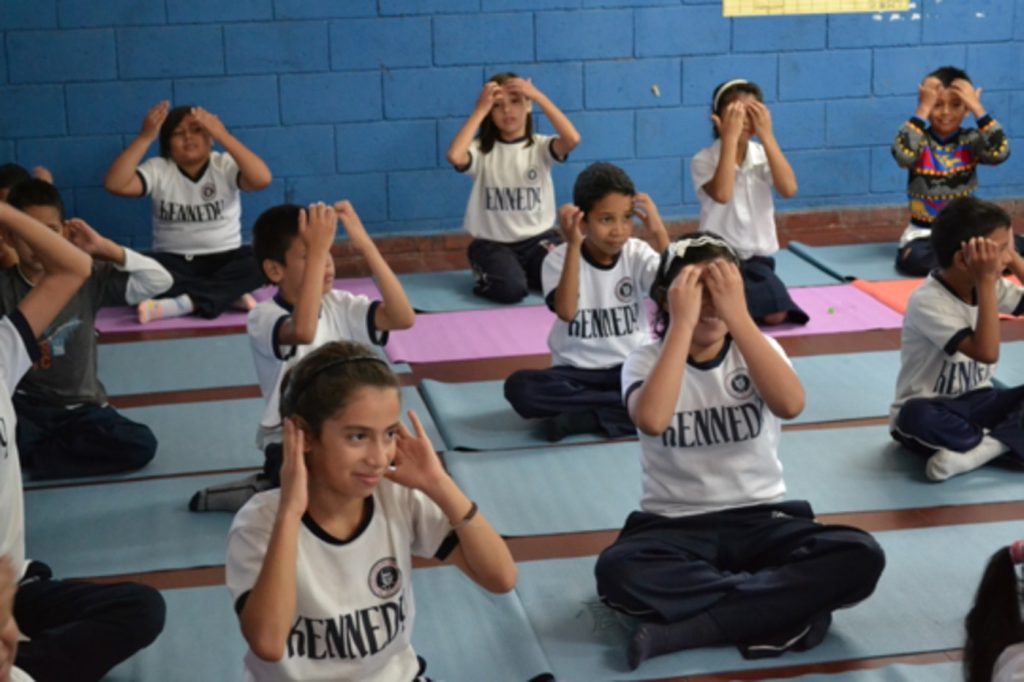
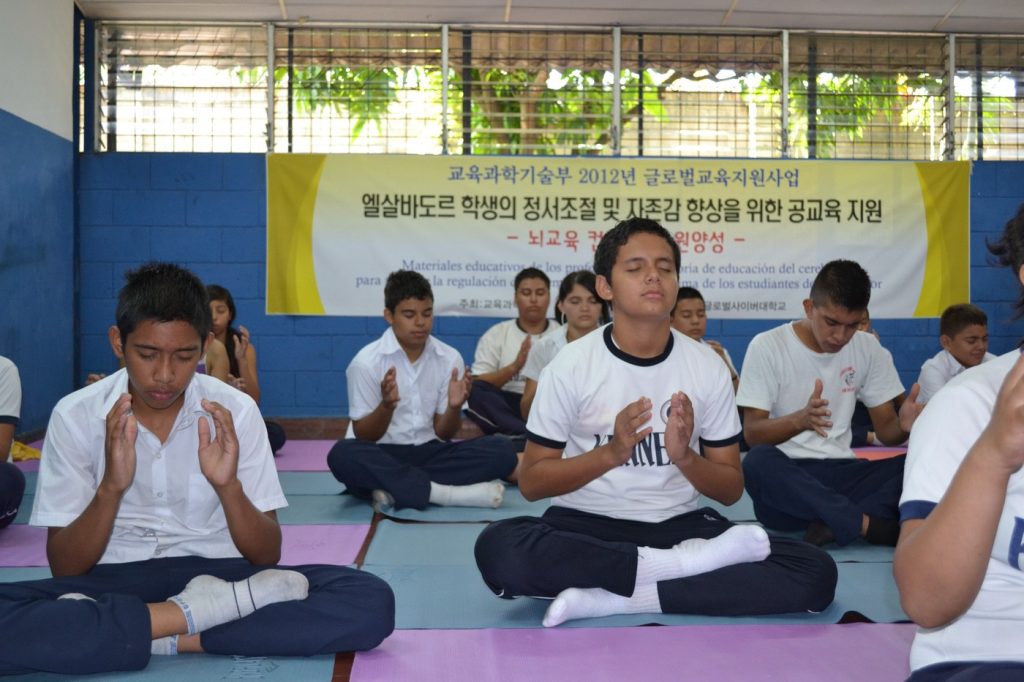
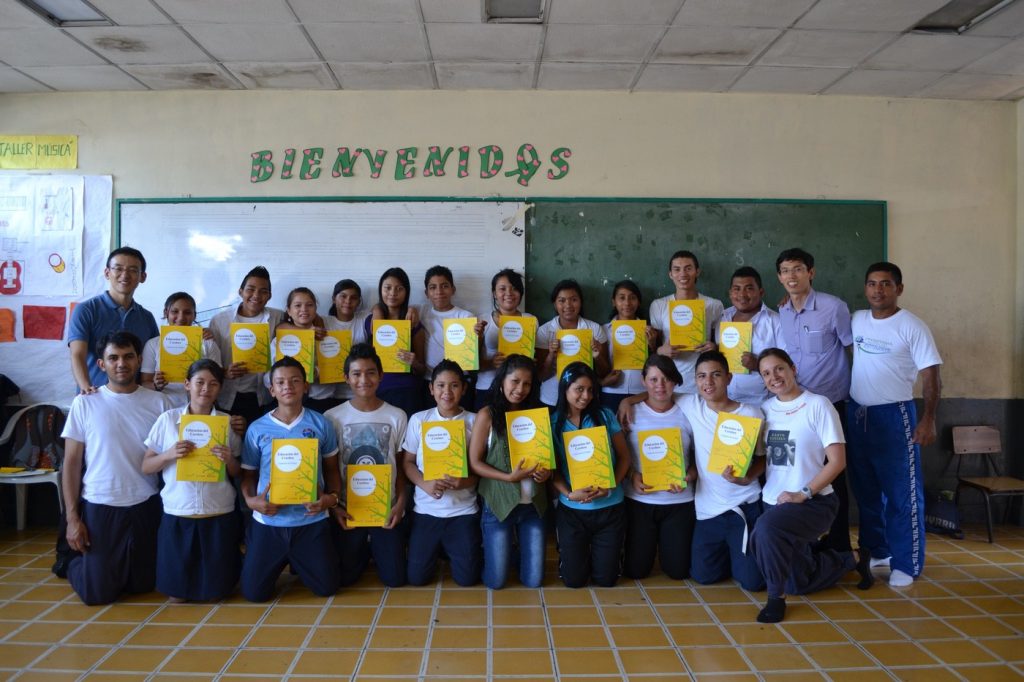
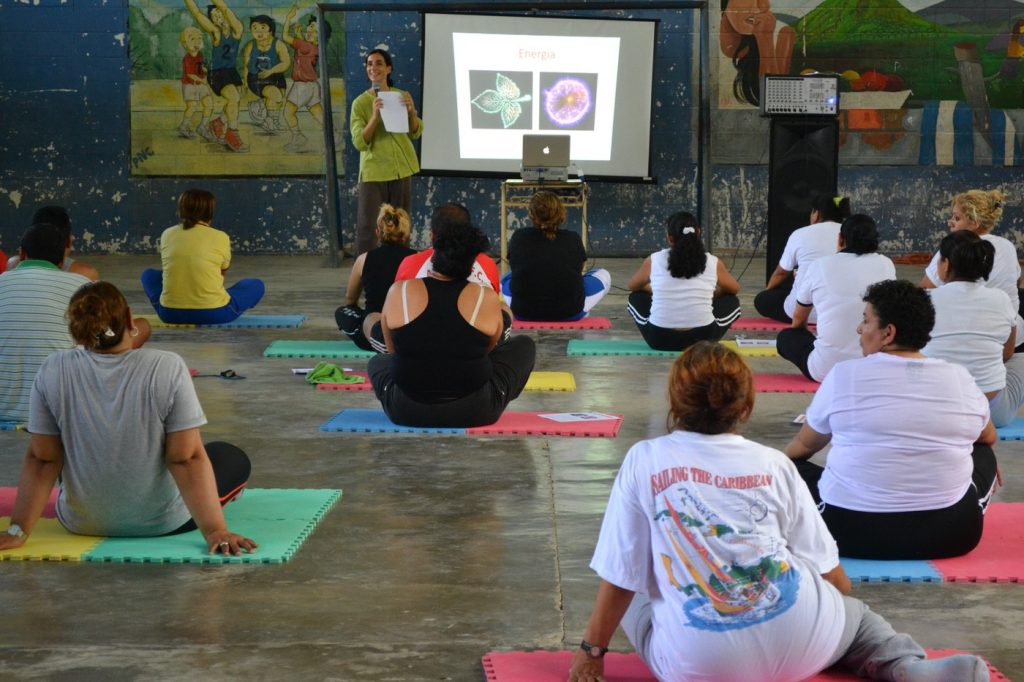
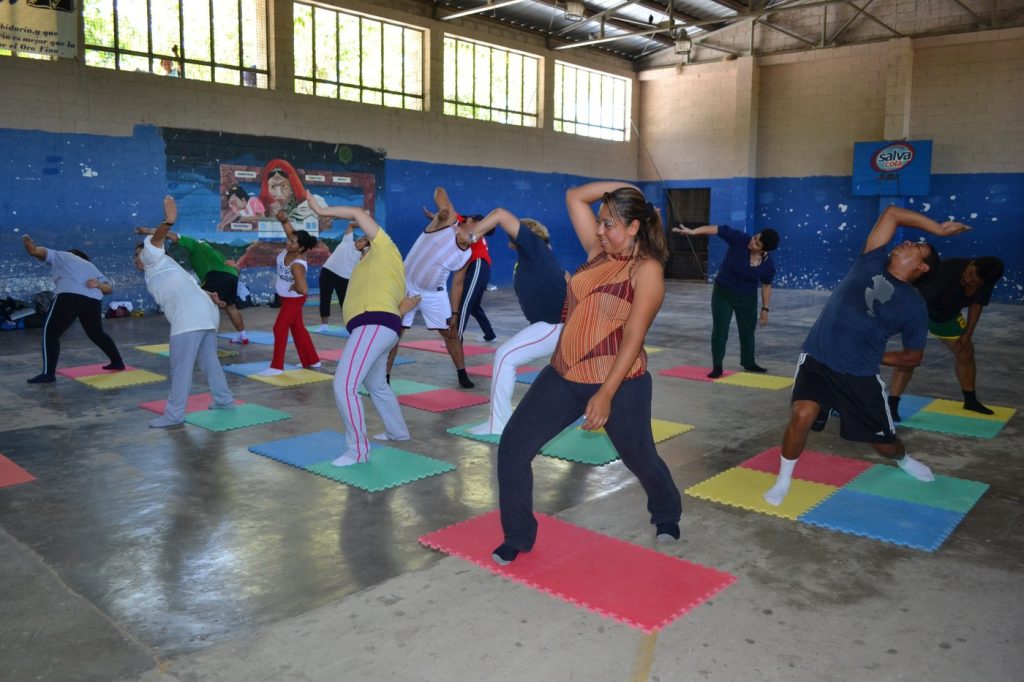
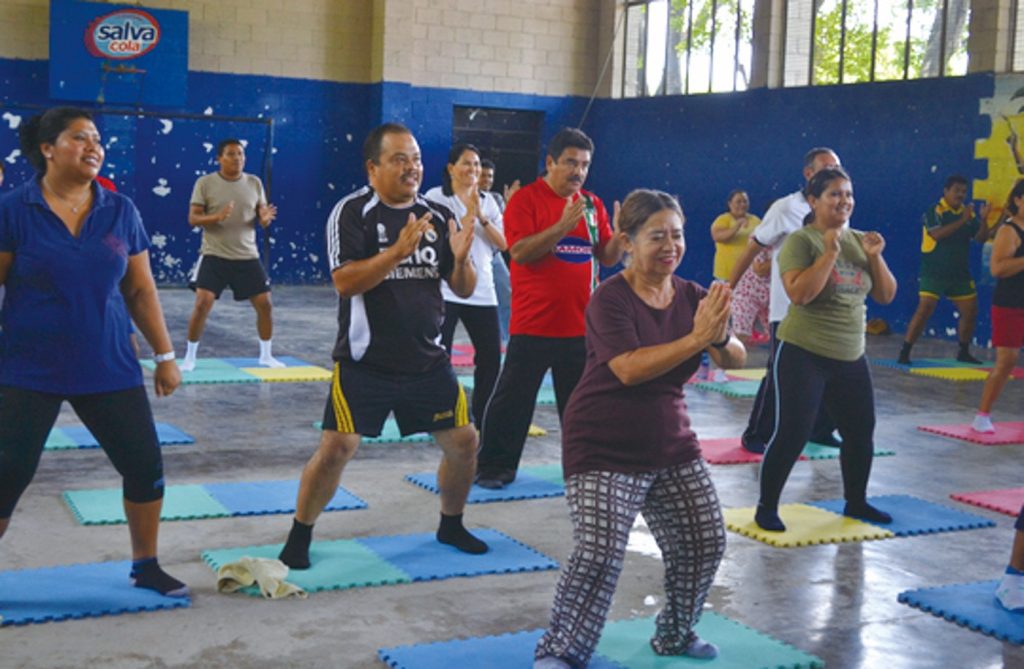
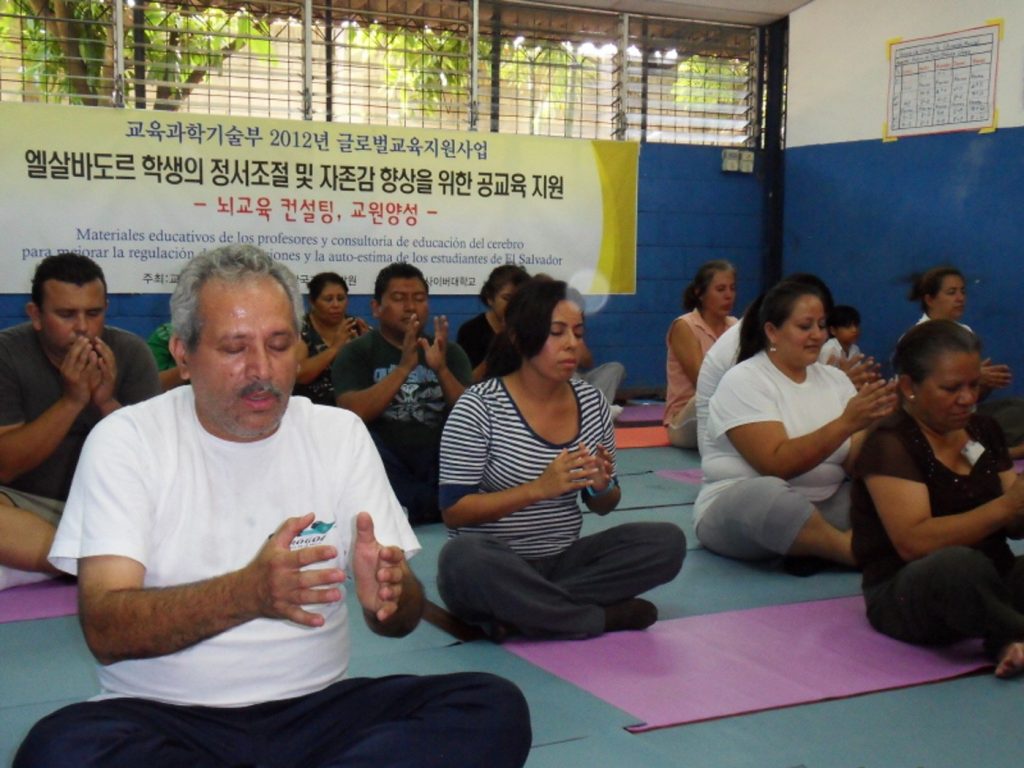
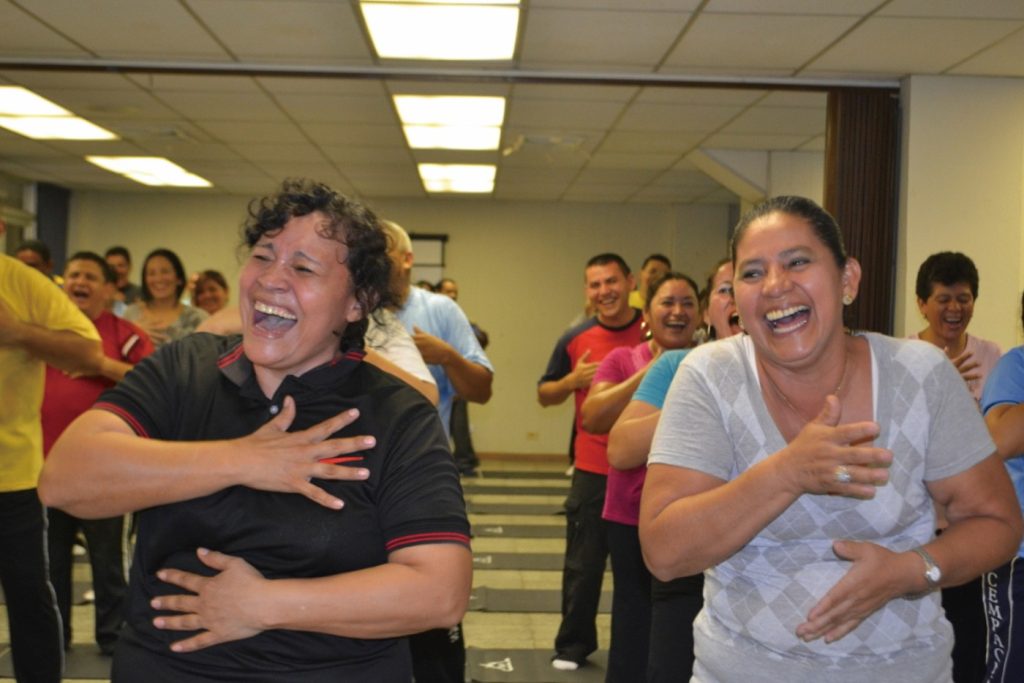
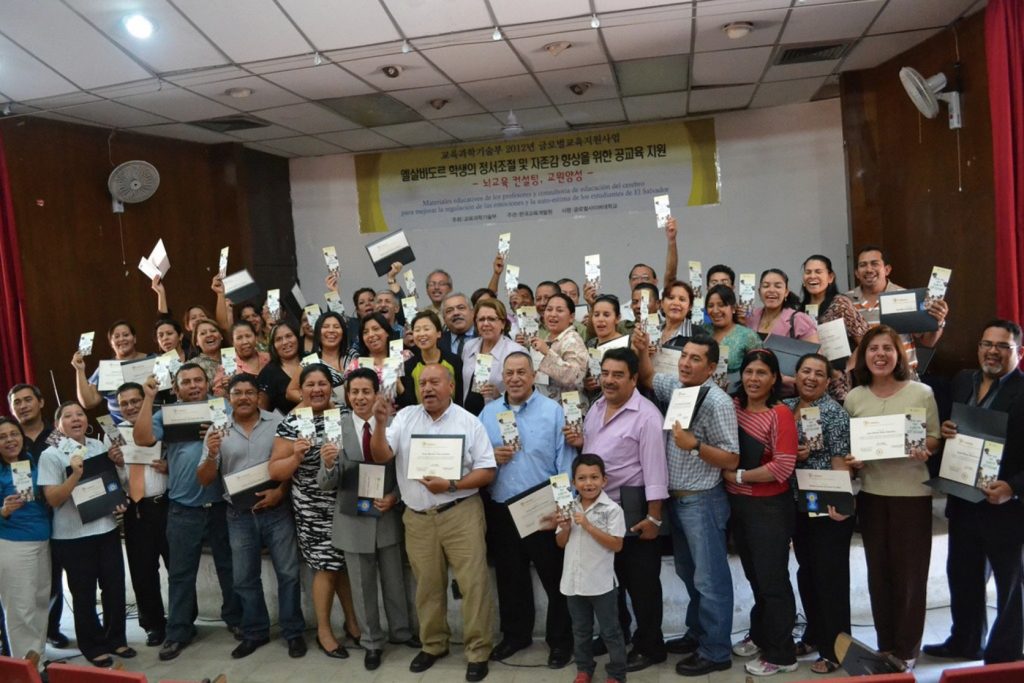
2013-2017 | Localization in El Salvador
Partnership Organizations
IBREA Foundation, the Ministry of Education of El Salvador, and the Salvadoran Institute for Educators’ Wellness (ISBM).
Upon the conclusion of aid from the Korean Ministry of Education in 2013, the IBREA Foundation entered into a Memorandum of Understanding with both the Ministry of Education of El Salvador and the Salvadoran Institute for Educators’ Wellness (ISBM). This collaborative effort led to the nationwide expansion of teacher training. Over a span of seven years, up until 2017, the project saw the participation of over 1,300 schools, equating to roughly one-fourth of all educational institutions in El Salvador.
Beneficiaries of the project
| Year | 2013 | 2014 | 2015 | 2016 | 2017 | Total |
|---|---|---|---|---|---|---|
| Direct Beneficiaries | 242 | 195 | 553 | 766 | 601 | 2,357 |
| Directly Impacted Schools | 126 | 139 | 220 | 463 | 393 | 1,341 |
Results
As per the 2014 statistics monitored by the Salvadoran Institute for Educators’ Wellness, there was a discernible improvement among teachers who had undergone Brain Education training. Notably, they reported reductions in weight and obesity rates. Furthermore, these educators also manifested positive shifts in areas like post-traumatic stress and a sense of personal accomplishment.
For a detailed exploration, read the full report at www.ibreafoundation.org
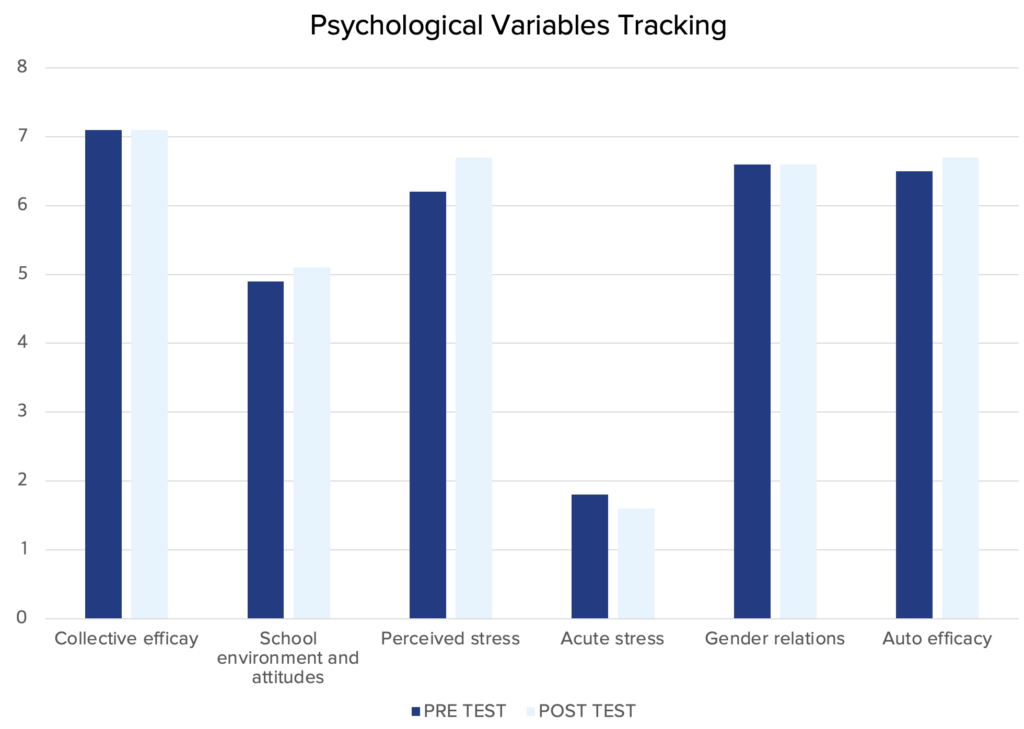
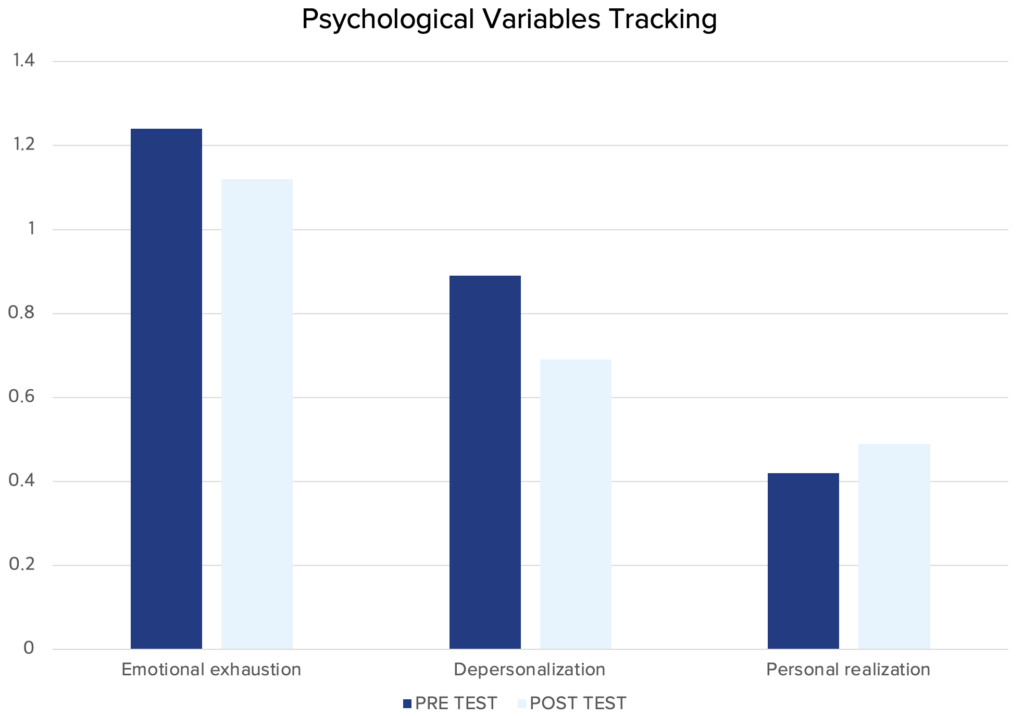
Mode of Operation for Brain Education Teacher Training:
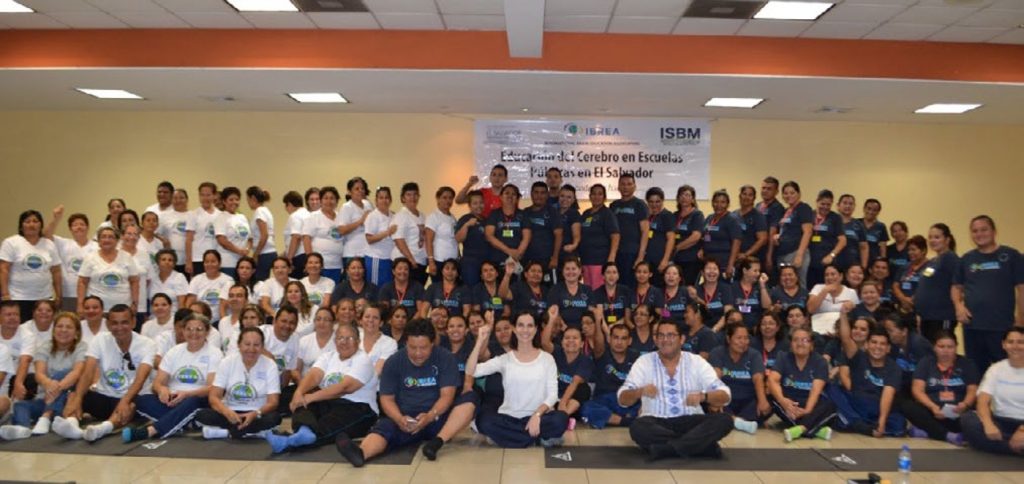
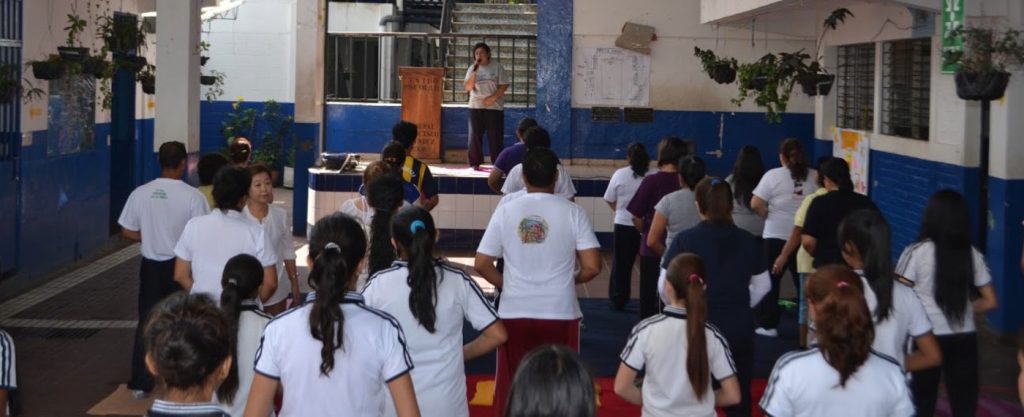
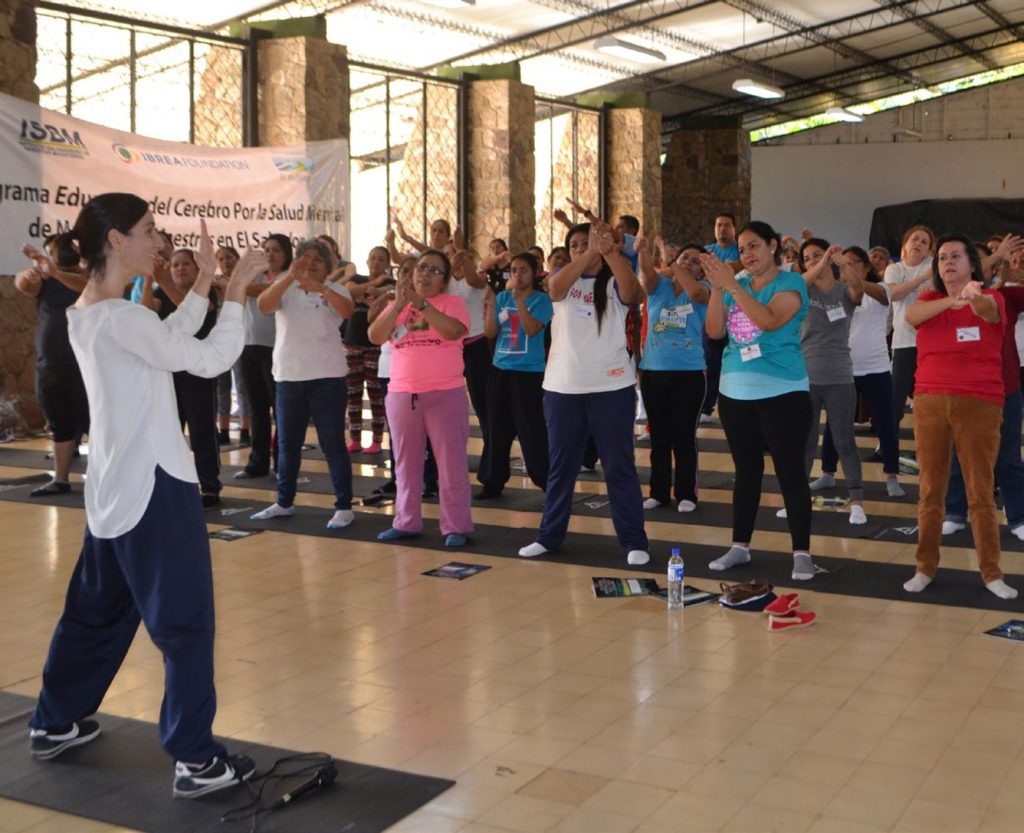
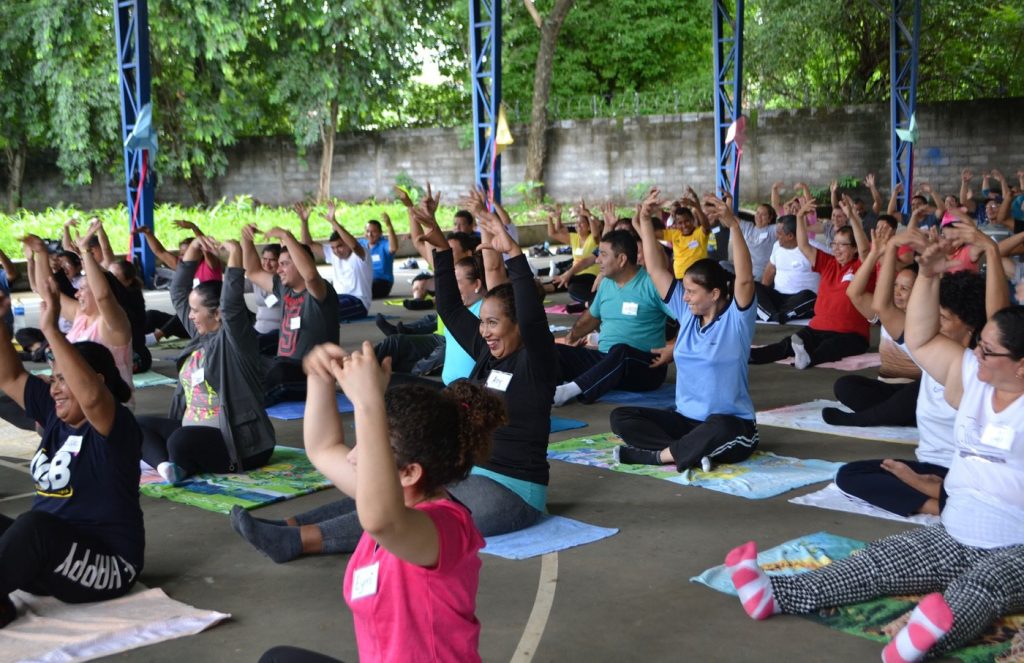
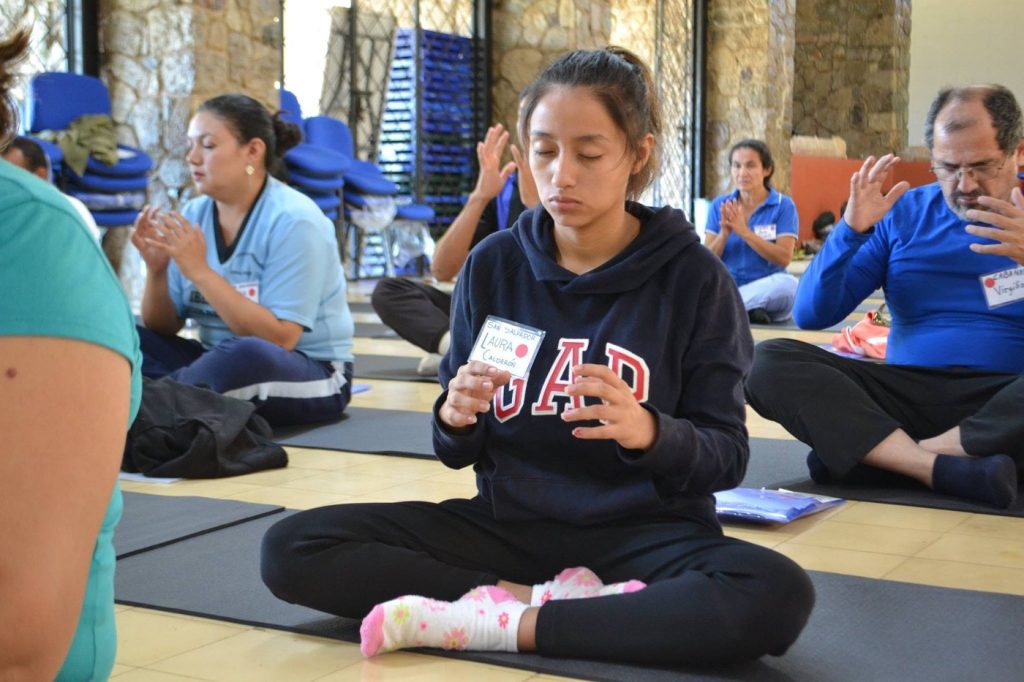
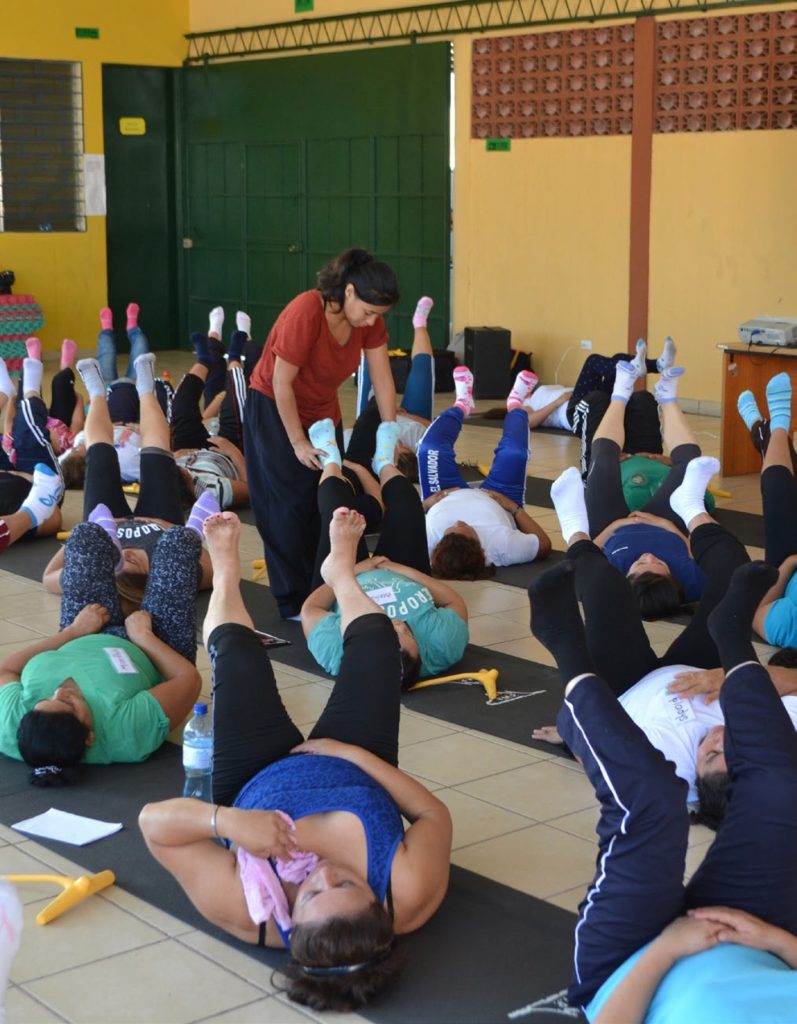
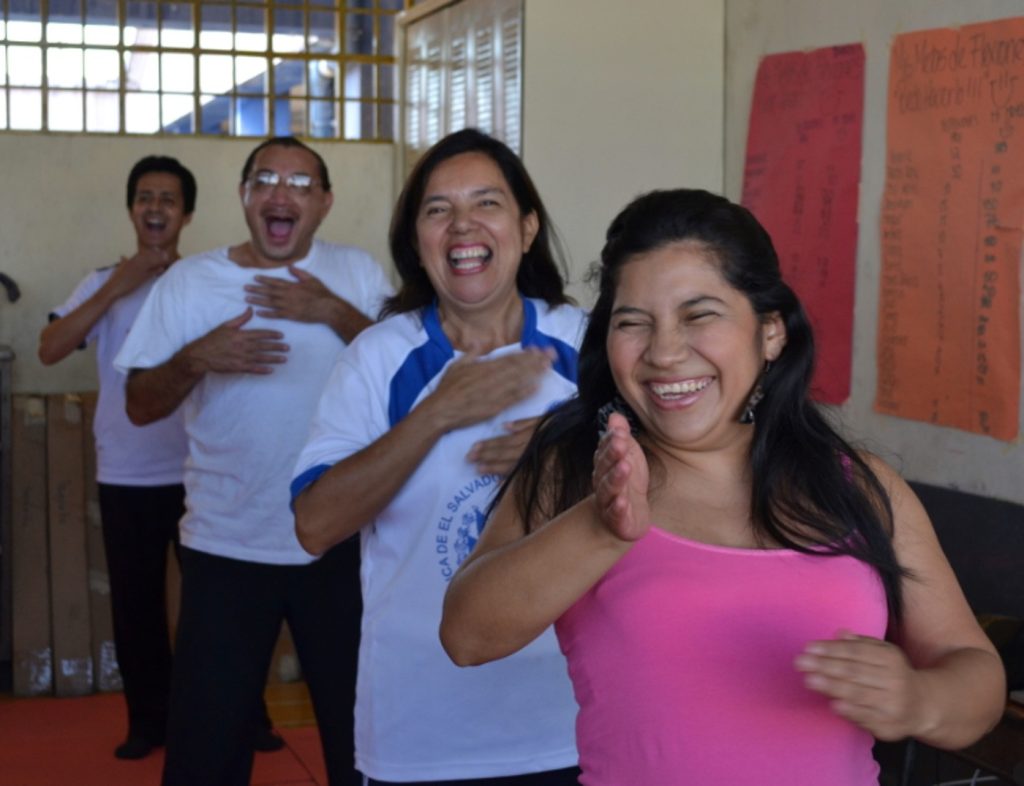
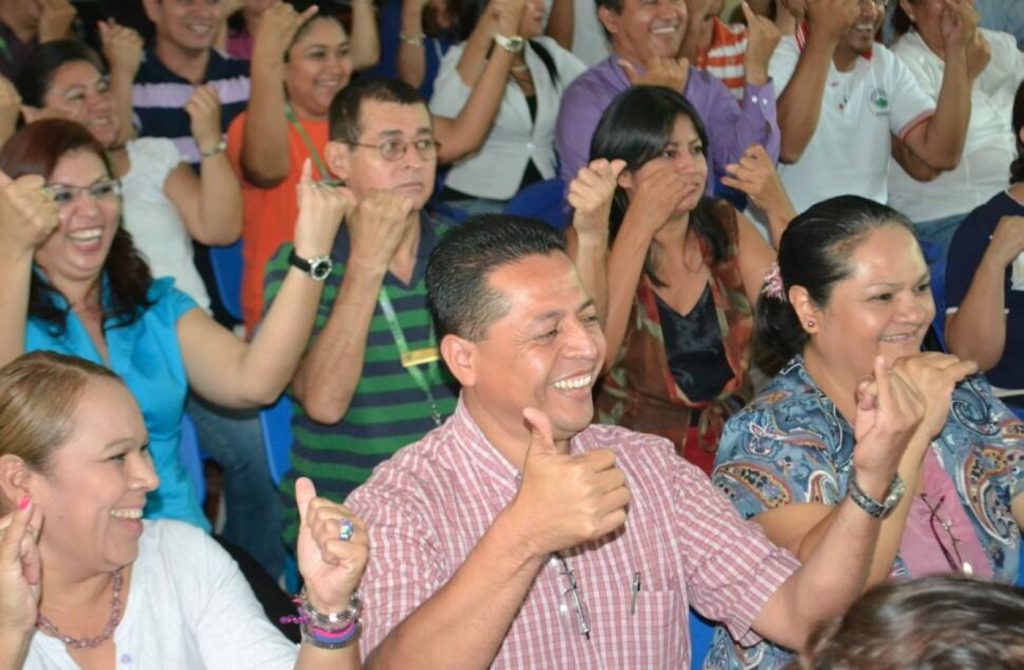
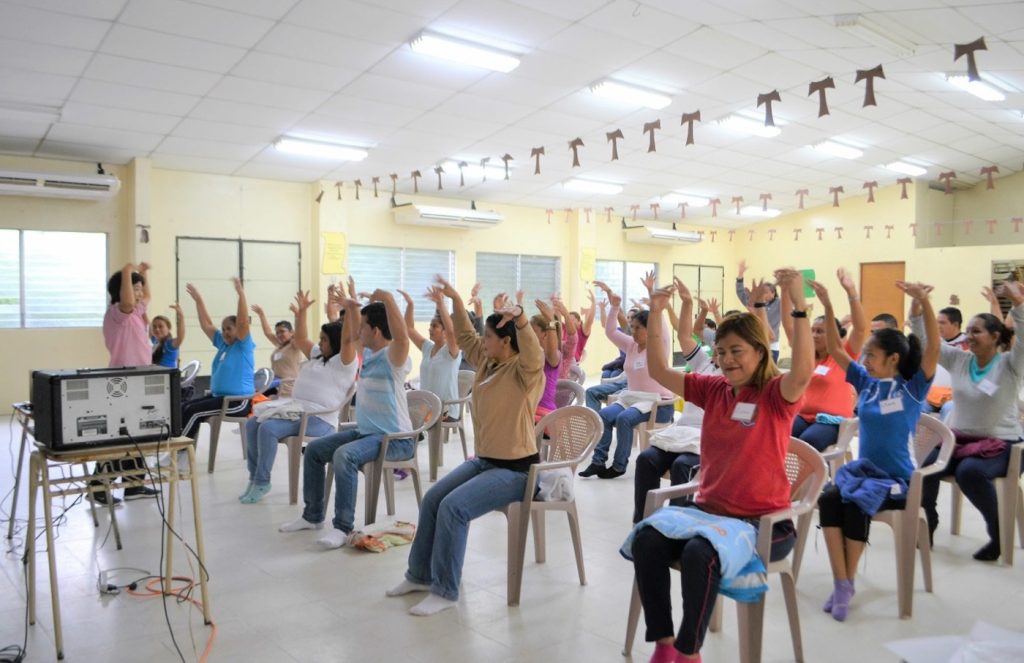
The training regimen for teachers incorporates an intensive workshop that takes place weekly, with the entire course extending over six months. At its conclusion, teachers are expected to return to their respective schools and impart the knowledge and techniques they’ve acquired to their colleagues and students. This phase has been designated as the “replication” step. The IBREA Foundation emphasizes the importance of this phase, believing that the act of disseminating their newfound insights promotes significant growth among teachers. This rationale is affirmed by the swift adoption of Brain Education across El Salvadoran schools, a phenomenon attributed predominantly to the effectiveness of the ‘replication’ system. RAFAEL ANTONIO COTO LÓPEZ, the president of the Salvadoran Institute for Educators’ Wellness, remarked:
“One of the best aspects of the program, in my view, is that the knowledge and training received can be replicated inside communities; this training-of-trainers method has allowed us to reach thousands of indirect beneficiaries as people start owning and replicating the program.”
Curriculum for Professional Teacher Training: Brain-based Holistic Education for Peace
| Topic 1 | The mind and body connection. |
|---|---|
| Topic 2 | Basic concepts about the mind and the body |
| Topic 3 | The nervous system and the brain waves |
| Topic 4 | Habits and neuroplasticity |
| Topic 5 | Emotions and stress |
| Topic 6 | Energy and electromagnetic field of the human body |
| Topic 7 | Resistance and perseverance – Overcoming difficult situations |
| Topic 8 | Conflict resolution and collaboration |
| Topic 9 | Focus, attention, imagination, and creativity |
| Topic 10 | Gratitude and the importance of experience |
| Topic 11 | Equality – Citizen of Earth consciousness beyond identity barriers |
| Topic 12 | PDAA (Planning, Doing, Assessing, Acting) – Life goals and success |

